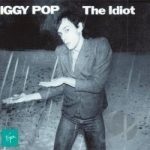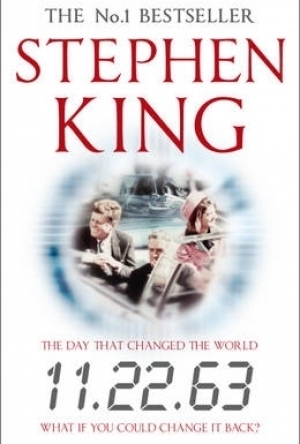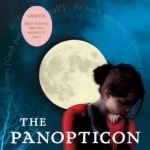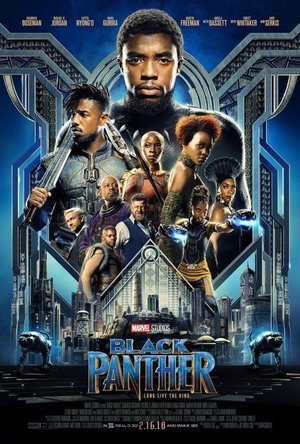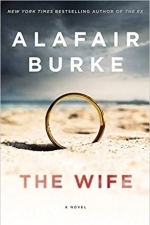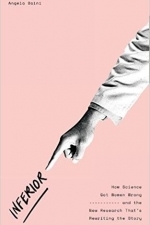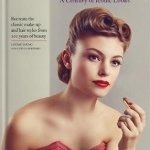Search
Search results
Johnny Marr recommended Idiot by Iggy Pop in Music (curated)
I don't know why, but for some reason I've never really taken to Stephen King's novels all that much.
I don't know whether that's because he's best known as a horror writer (with that being my least favourite genre), or whether because as a UK native I don't have quite the same cultural touchstones as King himself (or other American readers/writers), but there you have it.
(And, as an aside, I find that date format of 11.22.63 to be very disconcerting - I'm more used to dd/mm/yy i.e. 22/11/63 instead of 11.22.63)
Anyway, with all that said, I decided to give this a chance after it was recommended to me by a friend as 'a bit like Quantum Leap. I would have thought it was right up your street' (and I'm paraphrasing there somewhat).
I can see where he was coming from - this is a time travel novel, after all, here dealing with the JFK assassination - with the hero of the piece out to stop that assassination after finding a 'wormhole' back in time to the late 1950s.
Now that I've read it, I can say that it is definitely immersive with some solid world building, but boy does the middle section draaagggg: I was tempted, at one point, to just skip forward a good chunk (I didn't) to see if anything of note would happen ...
In short? Enjoyable enough, yes, but not enough to make me want to change my outlook on other King novels.
I don't know whether that's because he's best known as a horror writer (with that being my least favourite genre), or whether because as a UK native I don't have quite the same cultural touchstones as King himself (or other American readers/writers), but there you have it.
(And, as an aside, I find that date format of 11.22.63 to be very disconcerting - I'm more used to dd/mm/yy i.e. 22/11/63 instead of 11.22.63)
Anyway, with all that said, I decided to give this a chance after it was recommended to me by a friend as 'a bit like Quantum Leap. I would have thought it was right up your street' (and I'm paraphrasing there somewhat).
I can see where he was coming from - this is a time travel novel, after all, here dealing with the JFK assassination - with the hero of the piece out to stop that assassination after finding a 'wormhole' back in time to the late 1950s.
Now that I've read it, I can say that it is definitely immersive with some solid world building, but boy does the middle section draaagggg: I was tempted, at one point, to just skip forward a good chunk (I didn't) to see if anything of note would happen ...
In short? Enjoyable enough, yes, but not enough to make me want to change my outlook on other King novels.
Eilidh G Clark (177 KP) rated The Panopticon in Books
May 13, 2017
This is my all time favouurite book.
Jenny Fagan stated in an interview in 2013 that prior to writing the novel The Panopticon (2012) she had one question, ‘is it possible to achieve autonomy?’ Fagan explores this question throughout her novel with the character of Anais Hendrix. I would also suggest that the author is metaphorically exploring whether Scotland can achieve autonomy as an independent nation. Autonomy, in relation to the individual, is self-governance- or being able to decide for oneself
At the beginning of the novel, the fifteen-year old Anais is governed by the state. In contemporary British society, a child under the age of sixteen, regardless of her social situation is, by law, governed by an adult/s. Anais has lived her life in the care system with the exception of a short period in which she lived with an adopted mother. It is for this reason that she is able to see society from outside of the family unit. By creating the motherless child, Fagan presents Anais as the ‘other’ from both a societal perspective- ‘communities dinnae like no-ones,’ and from the viewpoint of the protagonist, ‘What they really want is me dead,’ (TP, p.23). Without a family, and through a lack of legitimate information regarding her birth mother, Anais believes that she was created in a lab:
I’M AN experiment. I always have been, It’s a given, a liberty, a fact. They watch me. Not just in school or social-work reviews, courts or police cells – they watch everywhere. […] They’re there when I stare too long or too clearly, without flinching. […] They watch me, I know it, and I can’t find anywhere any more – where they can’t see, (TP, Prologue).
Note that in the above quotation, the protagonist describes her assumed identity as a ‘liberty’. Liberty, in this case, means freedom from the oppressive nature of the family. Although Anais desires the nurturing aspect of the family, ‘I just want my mum,’ (Tp, p.269), her lack of family exposes her to the nature of contemporary society as a constant monitoring of civilians. In the above quotation, the repetition of ‘they’ suggests that she feels outside of the norm. The most important aspect of the above quote however, is that it is told from the protagonist’s thoughts. While Fagan gives Anais a certain amount of autonomy through both the first-person narrator, and the vernacular, the reliability of the narrator is increased by presenting the characters inner thoughts. While this limited autonomy is important, full autonomy is restricted by age. Bever suggests that ‘the capacity for individuals to become autonomous seems radically dependent on the contingent historical circumstances and societies into which they are born. Anais’ awareness of herself as the ‘other’ allows her an insight into the oppressive role of society, which is normally hindered in childhood due to the role of the family and it’s teaching of norms and values.
The sense of otherness can also be looked at in regard to Scotland and its role within the UK. The UK is a family of four countries under one state. Regardless of Scotland’s devolution, it has still to comply with a large amount of UK policies. Scotland has different values and goals to that of the UK making it ‘other’. With a different cultural identity to its neighbours, many Scottish citizens are seeking independence to protect its dwindling identity, whilst for others, independence is political.
Anais’ awareness of social control causes her a feeling of shrinking. This, according to her social workers is an identity problem:
Fifty odd moves, three different names, born in a nuthouse to a nobody that was never seen again. Identity problem? I dinnae have an identity problem – I dinnae have an identity, (TP, p.99).
Anais’ reaction in the above statement describes her lack of knowledge of her ancestry. I would argue that her identity is forced upon her from the fifty-one times that she has moved home, the care system, the solitary time in which she was adopted, the relationships she has had - both female and male, her friends but more importantly, from the unreliable account of her birth from the monk in the metal institution. The lack of family does not alter the fact that she is alive, and that all the fragments of her past make up an identity. For Anais, ‘Families are overrated […] ‘I umnay fooled. Not by families,’(TP, p.63-64). Like Anais, Scotland’s identity is ambiguous. Independence will allow Scotland political autonomy, however, within a global economy, Scotland still has limited autonomy. As culturally ‘other’ however, Scotland has already achieved autonomy with or without a state through its language, its people and its traditions.
Fagan demonstrates the difficulty of total autonomy though Anais and the birthday game, a game in which she creates her own identity. When she turns sixteen years of age, Anais is free from societal care and flees from her imprisonment, ‘I am Frances Jones from Paris. I am not a face on a missing-person poster, I am not a number or a statistic in a file. I have no-one watching me, […] I−begin today,’ (TP, p.323-324). ‘I’ suggests singularity and is still opposite to ‘them’ or ‘we’. Autonomy is therefore, ambiguous; Anais is still living within the same system under a false identity, she is therefore, segregated from everyone that she knows. Moreover, by changing Anais’ name to a name that ‘means freedom.’ (TP, p.323), Fagan is pointing out the difference between freedom and autonomy. Freedom is an emotive word, and there are two concepts of freedom – freedom from, which in Anais’ situation means freedom from the system of observation. Freedom to, however, is more problematic as Anais can never be free from the neoliberal system of rules and law – as Scotland would see in the case of independence. I would therefore conclude that Anais/Scotland has always has limited autonomy through cultural identity and history. I believe autonomy can only reside within the system through cultural and individual imagination and not out with it.
What does this mean for Scotland? If Scotland is part of the global community, can it become an autonomous nation? Is there a solution or should Anais/Scotland accept that cultural autonomy is imagined or self-contained. Can a collective identity and imagination change the political system? Finally, can culture survive without independence?
Bibliography
Crupp, Tyler, ‘Autonomy and Contemporary Political Theory’, in Encyclopaedia of Political Theory, ed. Mark Bevor (London: Sage Publications, 2010)
Fagan, Jenni, The Panopticon (London: Windmill Books, 2013), p.6.
Windmill Books. (2013). Granta Best Young British Novelist Jenni Fagan, . accessed 22 November 2015. Published on Apr 16, 2013
At the beginning of the novel, the fifteen-year old Anais is governed by the state. In contemporary British society, a child under the age of sixteen, regardless of her social situation is, by law, governed by an adult/s. Anais has lived her life in the care system with the exception of a short period in which she lived with an adopted mother. It is for this reason that she is able to see society from outside of the family unit. By creating the motherless child, Fagan presents Anais as the ‘other’ from both a societal perspective- ‘communities dinnae like no-ones,’ and from the viewpoint of the protagonist, ‘What they really want is me dead,’ (TP, p.23). Without a family, and through a lack of legitimate information regarding her birth mother, Anais believes that she was created in a lab:
I’M AN experiment. I always have been, It’s a given, a liberty, a fact. They watch me. Not just in school or social-work reviews, courts or police cells – they watch everywhere. […] They’re there when I stare too long or too clearly, without flinching. […] They watch me, I know it, and I can’t find anywhere any more – where they can’t see, (TP, Prologue).
Note that in the above quotation, the protagonist describes her assumed identity as a ‘liberty’. Liberty, in this case, means freedom from the oppressive nature of the family. Although Anais desires the nurturing aspect of the family, ‘I just want my mum,’ (Tp, p.269), her lack of family exposes her to the nature of contemporary society as a constant monitoring of civilians. In the above quotation, the repetition of ‘they’ suggests that she feels outside of the norm. The most important aspect of the above quote however, is that it is told from the protagonist’s thoughts. While Fagan gives Anais a certain amount of autonomy through both the first-person narrator, and the vernacular, the reliability of the narrator is increased by presenting the characters inner thoughts. While this limited autonomy is important, full autonomy is restricted by age. Bever suggests that ‘the capacity for individuals to become autonomous seems radically dependent on the contingent historical circumstances and societies into which they are born. Anais’ awareness of herself as the ‘other’ allows her an insight into the oppressive role of society, which is normally hindered in childhood due to the role of the family and it’s teaching of norms and values.
The sense of otherness can also be looked at in regard to Scotland and its role within the UK. The UK is a family of four countries under one state. Regardless of Scotland’s devolution, it has still to comply with a large amount of UK policies. Scotland has different values and goals to that of the UK making it ‘other’. With a different cultural identity to its neighbours, many Scottish citizens are seeking independence to protect its dwindling identity, whilst for others, independence is political.
Anais’ awareness of social control causes her a feeling of shrinking. This, according to her social workers is an identity problem:
Fifty odd moves, three different names, born in a nuthouse to a nobody that was never seen again. Identity problem? I dinnae have an identity problem – I dinnae have an identity, (TP, p.99).
Anais’ reaction in the above statement describes her lack of knowledge of her ancestry. I would argue that her identity is forced upon her from the fifty-one times that she has moved home, the care system, the solitary time in which she was adopted, the relationships she has had - both female and male, her friends but more importantly, from the unreliable account of her birth from the monk in the metal institution. The lack of family does not alter the fact that she is alive, and that all the fragments of her past make up an identity. For Anais, ‘Families are overrated […] ‘I umnay fooled. Not by families,’(TP, p.63-64). Like Anais, Scotland’s identity is ambiguous. Independence will allow Scotland political autonomy, however, within a global economy, Scotland still has limited autonomy. As culturally ‘other’ however, Scotland has already achieved autonomy with or without a state through its language, its people and its traditions.
Fagan demonstrates the difficulty of total autonomy though Anais and the birthday game, a game in which she creates her own identity. When she turns sixteen years of age, Anais is free from societal care and flees from her imprisonment, ‘I am Frances Jones from Paris. I am not a face on a missing-person poster, I am not a number or a statistic in a file. I have no-one watching me, […] I−begin today,’ (TP, p.323-324). ‘I’ suggests singularity and is still opposite to ‘them’ or ‘we’. Autonomy is therefore, ambiguous; Anais is still living within the same system under a false identity, she is therefore, segregated from everyone that she knows. Moreover, by changing Anais’ name to a name that ‘means freedom.’ (TP, p.323), Fagan is pointing out the difference between freedom and autonomy. Freedom is an emotive word, and there are two concepts of freedom – freedom from, which in Anais’ situation means freedom from the system of observation. Freedom to, however, is more problematic as Anais can never be free from the neoliberal system of rules and law – as Scotland would see in the case of independence. I would therefore conclude that Anais/Scotland has always has limited autonomy through cultural identity and history. I believe autonomy can only reside within the system through cultural and individual imagination and not out with it.
What does this mean for Scotland? If Scotland is part of the global community, can it become an autonomous nation? Is there a solution or should Anais/Scotland accept that cultural autonomy is imagined or self-contained. Can a collective identity and imagination change the political system? Finally, can culture survive without independence?
Bibliography
Crupp, Tyler, ‘Autonomy and Contemporary Political Theory’, in Encyclopaedia of Political Theory, ed. Mark Bevor (London: Sage Publications, 2010)
Fagan, Jenni, The Panopticon (London: Windmill Books, 2013), p.6.
Windmill Books. (2013). Granta Best Young British Novelist Jenni Fagan, . accessed 22 November 2015. Published on Apr 16, 2013
Kristy H (1252 KP) rated American Panda in Books
Mar 20, 2019
A little sweet & simple at times, but overall a great read
Mei is seventeen and already in college at MIT, pursuing a dream. But the dream is that of her parents: become a doctor, marry the right man, and live a successful, secure life. Mei's parents have given up so much for her and her brother to live this dream. Her brother, Xing, however, has been disowned by the family. He is a doctor, but fell for the "wrong" woman, and the family no longer speaks to him. Mei, meanwhile, lives in fear of telling her parents her secret: she doesn't want to be a doctor. At all. She's afraid of germs, she hates biology, and her true passion is dance. She's also falling for a classmate, Darren, who would definitely not be on the parental-approved list. Mei is terrified of letting her parents down--and ending up like Xing. But will she ever have the chance to live her own life?
"Study hard. Bring honor to our family. Do not disappoint us. You know the stakes."
So, I wasn't sure I would really like this one when it started: it seemed a little predictable and got off to a rocky start for me. Mei, for instance, meets a germaphobic doctor "exactly like her" at the school's clinic (what are the odds?!), she's the meek daughter scared of her parents, oh she falls for a boy her parents wouldn't approve of, etc. Luckily, though, the book really grew on me and definitely expanded beyond the expected. Mei is a great character, whom I found myself rooting for, and I couldn't help empathizing with. Her parents, honestly, are just so frustrating and stressful. Sure, you can see where they are coming from and the cultural expectations, yet your heart just breaks for this poor seventeen-year-old and the weight of the world she feels upon her shoulders.
"To them, a secure future was the ultimate gift a parent could give. How could I refuse them when this was their motivation?"
The book really soars as Mei expands her wings in college and experiences some growth--meeting Darren, dancing, and reaching out to her brother. It's really sweet and touching, honestly, watching her make some of her own decisions. For me, her friendship and potential relationship with Darren made the book. It's so adorable and fun and was easily my favorite portion. It was exactly what the book needed and somehow felt fresh and not like the usual YA romances. Mei has a really unique voice, and I felt that Chao did an excellent job of capturing her main character. You cannot help but feel for this girl and start to want what she wants.
"'Look, what I feel-the sense of duty-it's debilitating, makes me feel so ashamed that I don't even care what I want.'"
So, even though things can be a little sweet and simple at times, the book really does cover a range of complex issues--cultural, family, societal, and more. It also does a good job of making you smile, and Mei is a lovely character. (As is Darren!) It might wrap up a little too easily, but it was a really enjoyable read overall, and I think Mei's voice is one sorely lacking in YA.
"Study hard. Bring honor to our family. Do not disappoint us. You know the stakes."
So, I wasn't sure I would really like this one when it started: it seemed a little predictable and got off to a rocky start for me. Mei, for instance, meets a germaphobic doctor "exactly like her" at the school's clinic (what are the odds?!), she's the meek daughter scared of her parents, oh she falls for a boy her parents wouldn't approve of, etc. Luckily, though, the book really grew on me and definitely expanded beyond the expected. Mei is a great character, whom I found myself rooting for, and I couldn't help empathizing with. Her parents, honestly, are just so frustrating and stressful. Sure, you can see where they are coming from and the cultural expectations, yet your heart just breaks for this poor seventeen-year-old and the weight of the world she feels upon her shoulders.
"To them, a secure future was the ultimate gift a parent could give. How could I refuse them when this was their motivation?"
The book really soars as Mei expands her wings in college and experiences some growth--meeting Darren, dancing, and reaching out to her brother. It's really sweet and touching, honestly, watching her make some of her own decisions. For me, her friendship and potential relationship with Darren made the book. It's so adorable and fun and was easily my favorite portion. It was exactly what the book needed and somehow felt fresh and not like the usual YA romances. Mei has a really unique voice, and I felt that Chao did an excellent job of capturing her main character. You cannot help but feel for this girl and start to want what she wants.
"'Look, what I feel-the sense of duty-it's debilitating, makes me feel so ashamed that I don't even care what I want.'"
So, even though things can be a little sweet and simple at times, the book really does cover a range of complex issues--cultural, family, societal, and more. It also does a good job of making you smile, and Mei is a lovely character. (As is Darren!) It might wrap up a little too easily, but it was a really enjoyable read overall, and I think Mei's voice is one sorely lacking in YA.
Suswatibasu (1703 KP) rated Black Panther (2018) in Movies
Mar 10, 2018 (Updated Mar 10, 2018)
Strong representation for a change
Hooray for Hollywood for finally making a film in which black people are portrayed as strong and advanced individuals, and more strikingly - an alternative vision of an Africa uncolonised.
In comparison to the other representative blockbuster @Wonder Woman (2017), Black Panther had a less two dimensional villain, and a more developed plot.
Instead of an evil Nazi general or a God of War, who have no other reason to destroy humanity but for the sake of it, Killimonger, played by Michael B. Jordan, is understandably troubled living in destitute conditions as an African American fighting an oppressive system.
His anger manifests in his sense of entitlement, of a life that was stolen from him, and feeling betrayed by those in power who could have rescued him. It is similar to the relationship between Professor X and Magneto in the X-Men series where there is still a deep respect between the two and the attempt to solve humanity's problems in differing ways. Here, Marvel continues to excel in story-telling where DC falls behind.
T'challa is also fallible, he is human after all, and so he shows his vulnerability during one-on-one combats, unlike Wonder Woman who is an all powerful weapon to fight the gods. Here, the women in Black Panther surpass other superhero movies as generals, warriors and activists with more than a love interest type role, although some characters played both.
And while I'm not actually a massive fan of the genre - it is a cultural feat to watch diversity on the screens, which is why I'll continue to like Wonder Woman, while profoundly admiring Black Panther. #WakandaForever
In comparison to the other representative blockbuster @Wonder Woman (2017), Black Panther had a less two dimensional villain, and a more developed plot.
Instead of an evil Nazi general or a God of War, who have no other reason to destroy humanity but for the sake of it, Killimonger, played by Michael B. Jordan, is understandably troubled living in destitute conditions as an African American fighting an oppressive system.
His anger manifests in his sense of entitlement, of a life that was stolen from him, and feeling betrayed by those in power who could have rescued him. It is similar to the relationship between Professor X and Magneto in the X-Men series where there is still a deep respect between the two and the attempt to solve humanity's problems in differing ways. Here, Marvel continues to excel in story-telling where DC falls behind.
T'challa is also fallible, he is human after all, and so he shows his vulnerability during one-on-one combats, unlike Wonder Woman who is an all powerful weapon to fight the gods. Here, the women in Black Panther surpass other superhero movies as generals, warriors and activists with more than a love interest type role, although some characters played both.
And while I'm not actually a massive fan of the genre - it is a cultural feat to watch diversity on the screens, which is why I'll continue to like Wonder Woman, while profoundly admiring Black Panther. #WakandaForever
Lyndsey Gollogly (2893 KP) rated The Wife: A Novel in Books
Oct 11, 2022
186 of 230
Book
The Wife
By Alafair Burke
⭐️⭐️⭐️⭐️⭐️
His Scandal - Her Secret
When Angela met Jason Powell while catering a dinner party in East Hampton, she assumed their romance would be a short-lived fling, like so many relationships between locals and summer visitors. To her surprise, Jason, a brilliant economics professor at NYU, had other plans, and they married the following summer. For Angela, the marriage turned out to be a chance to reboot her life. She and her son were finally able to move out of her mother’s home to Manhattan, where no one knew about her tragic past.
Six years later, thanks to a bestselling book and a growing media career, Jason has become a cultural lightning rod, placing Angela near the spotlight she worked so carefully to avoid. When a college intern makes an accusation against Jason, and another woman, Kerry Lynch, comes forward with an even more troubling allegation, their life begins to unravel. Jason insists he is innocent, and Angela believes him. But when Kerry disappears, Angela is forced to take a closer look—at both the man she married and the women she chose not to believe.
Well that was one hell of a book! From start to finish it was just brilliant. It had you questioning all the way through how far would you go to protect your family? And how much would you put up with as a wife? Even right to the end it’s not what I was expecting. It made you want to keep reading. Highly recommended!
Book
The Wife
By Alafair Burke
⭐️⭐️⭐️⭐️⭐️
His Scandal - Her Secret
When Angela met Jason Powell while catering a dinner party in East Hampton, she assumed their romance would be a short-lived fling, like so many relationships between locals and summer visitors. To her surprise, Jason, a brilliant economics professor at NYU, had other plans, and they married the following summer. For Angela, the marriage turned out to be a chance to reboot her life. She and her son were finally able to move out of her mother’s home to Manhattan, where no one knew about her tragic past.
Six years later, thanks to a bestselling book and a growing media career, Jason has become a cultural lightning rod, placing Angela near the spotlight she worked so carefully to avoid. When a college intern makes an accusation against Jason, and another woman, Kerry Lynch, comes forward with an even more troubling allegation, their life begins to unravel. Jason insists he is innocent, and Angela believes him. But when Kerry disappears, Angela is forced to take a closer look—at both the man she married and the women she chose not to believe.
Well that was one hell of a book! From start to finish it was just brilliant. It had you questioning all the way through how far would you go to protect your family? And how much would you put up with as a wife? Even right to the end it’s not what I was expecting. It made you want to keep reading. Highly recommended!
Heather Cranmer (2721 KP) created a post
Apr 3, 2022
Merissa (12934 KP) rated Blood Pact (Youkai Bloodlines #2) in Books
May 7, 2021 (Updated Jul 26, 2023)
BLOOD PACT is the second book in the Youkai Bloodlines series, and we start off with Hiro. He is a geisha, taken in from the street, and now a man of renown because of his voice. When a local thug takes offence at Hiro entertaining a samurai; Hiro's world is torn apart.
This isn't a romance story, per se. It is diving into the world of the mythological, fantastical, and horrible. Hide would do anything for Hiro, apart from showing it! And Hiro has enough heart for both of them. Even Asagi recognises that. Yes, they are in here too, but I don't think life has treated them kindly since last we met. I do so want a HEA for them, back with their maker.
Although this is book two, as Hiro puts it, this is only the beginning. I love where the story is going, plus the character development and supporting cast. You end up with more questions than answers, and it's just perfect for this series. This book is long enough to sink your teeth into (!), and is perfectly paced, giving you action and then a time of rest. Diving into cultural mythology is a bonus for me.
A fantastic addition to the series and absolutely recommended by me. I can't wait to see what happens next.
** same worded review will appear elsewhere **
* A copy of this book was provided to me with no requirements for a review. I voluntarily read this book, and the comments here are my honest opinion. *
Merissa
Archaeolibrarian - I Dig Good Books!
May 7, 2021
This isn't a romance story, per se. It is diving into the world of the mythological, fantastical, and horrible. Hide would do anything for Hiro, apart from showing it! And Hiro has enough heart for both of them. Even Asagi recognises that. Yes, they are in here too, but I don't think life has treated them kindly since last we met. I do so want a HEA for them, back with their maker.
Although this is book two, as Hiro puts it, this is only the beginning. I love where the story is going, plus the character development and supporting cast. You end up with more questions than answers, and it's just perfect for this series. This book is long enough to sink your teeth into (!), and is perfectly paced, giving you action and then a time of rest. Diving into cultural mythology is a bonus for me.
A fantastic addition to the series and absolutely recommended by me. I can't wait to see what happens next.
** same worded review will appear elsewhere **
* A copy of this book was provided to me with no requirements for a review. I voluntarily read this book, and the comments here are my honest opinion. *
Merissa
Archaeolibrarian - I Dig Good Books!
May 7, 2021
Suswatibasu (1703 KP) rated Inferior: How Science Got Women Wrong in Books
Nov 12, 2017
A superior book debunking gender stereotypes in the scientific community
There are times when a book comes along that is perfectly timed for the zeitgeist and that is true of Angela Saini's Inferior - How Science Got Women Wrong. Most of the educational and scientific community would protest their absolute lack of gender bias - but the fact remains that the scientific establishment is still predominantly run by men even if in some disciplines there are more female students than male. And some scientists tell us that there is evidence to underline why this is the natural order, due to brain differences between males and females.
Saini systemically pulls this assertion apart, showing how many of the apparent brain differences - and even physical modification of the brain - can be the result of cultural influences. She highlights that although there maybe some differences, they are significantly smaller between male to female, and that each individual should be looked at on a case by case basis.
After a shocking opening demonstrating just how recently women's brains were genuinely considered inferior - Saini quotes Darwin in a letter making it clear that even as a leading evolutionist, he also believed this to be the situation - which is why it's hardly surprising research continues to be skewed.
We also see remarkable bias in the development of anthropological ideas pushing through to the evolutionary field, discussing how men had been seen as hunter gatherers - though this clearly isn't the case in many closed societies. She speaks.to leading scientists who have studied women's roles in tribes across China, South America and Africa, who completely turn this theory on its head.
What she shows is that any interpretation can be possible if you have an agenda, whether consciously or unconsciously, hence research needs to be scrutinised analytically from every perspective. A fascinating and essential read.
Saini systemically pulls this assertion apart, showing how many of the apparent brain differences - and even physical modification of the brain - can be the result of cultural influences. She highlights that although there maybe some differences, they are significantly smaller between male to female, and that each individual should be looked at on a case by case basis.
After a shocking opening demonstrating just how recently women's brains were genuinely considered inferior - Saini quotes Darwin in a letter making it clear that even as a leading evolutionist, he also believed this to be the situation - which is why it's hardly surprising research continues to be skewed.
We also see remarkable bias in the development of anthropological ideas pushing through to the evolutionary field, discussing how men had been seen as hunter gatherers - though this clearly isn't the case in many closed societies. She speaks.to leading scientists who have studied women's roles in tribes across China, South America and Africa, who completely turn this theory on its head.
What she shows is that any interpretation can be possible if you have an agenda, whether consciously or unconsciously, hence research needs to be scrutinised analytically from every perspective. A fascinating and essential read.
Sassy Brit (97 KP) rated Timeless: Recreate the Most Iconic Looks from 100 Years of Beauty in Books
Jun 5, 2019
The hardcover version of Timeless: A Century of Iconic Looks by Louise Young, Loulia Sheppard is a stunning and informative book for recreating the most striking make-up and hair styles of the 20th century with step-by-step guides. If you love fashion, different hairstyles and the make-up that goes with these different years, I can see you loving this.
Timeless is indeed a beauty of a book, with glossy photos and clear, concise ‘how to’ steps to recreate the styles and make-up from the early years, and the jazz-age flapper 1930s right up to the 1980s and beyond.
I’m a fan of the sixties, Jean Shrimpton, Twiggy models, and designer Mary Quant, who all influenced the UK and made London an icon fashion hub back in the day. So I really liked how there was quite a chunk dedicated to this (and other) hairstyle and make-up periods. I wish I was old enough to have lived in this era!
It’s also amazing to see just how long brands like Max Factor, Yardley, Ponds, Elizabeth Arden and Revlon have been going. And sad to read how much of the make-up was bought from much-loved shops like Woolworths, which I do remember! (The shop, not buying make-up in the 60s!)
The cultural revolution of the 1960s saw innovative make-up formulations produced, boundaries being pushed and the youthful Swinging London scene influencing looks all over the world. ?????????”
Put together by renowned film, television and make-up artist Louise Young, along with leading film industry hairstylist Loulia Sheppard, this is an outstanding book full of tips, tricks and stunning photos. Whether you’re a fashion guru or just like this as a coffee table book, it’s definitely a conversation starter.
Timeless is indeed a beauty of a book, with glossy photos and clear, concise ‘how to’ steps to recreate the styles and make-up from the early years, and the jazz-age flapper 1930s right up to the 1980s and beyond.
I’m a fan of the sixties, Jean Shrimpton, Twiggy models, and designer Mary Quant, who all influenced the UK and made London an icon fashion hub back in the day. So I really liked how there was quite a chunk dedicated to this (and other) hairstyle and make-up periods. I wish I was old enough to have lived in this era!
It’s also amazing to see just how long brands like Max Factor, Yardley, Ponds, Elizabeth Arden and Revlon have been going. And sad to read how much of the make-up was bought from much-loved shops like Woolworths, which I do remember! (The shop, not buying make-up in the 60s!)
The cultural revolution of the 1960s saw innovative make-up formulations produced, boundaries being pushed and the youthful Swinging London scene influencing looks all over the world. ?????????”
Put together by renowned film, television and make-up artist Louise Young, along with leading film industry hairstylist Loulia Sheppard, this is an outstanding book full of tips, tricks and stunning photos. Whether you’re a fashion guru or just like this as a coffee table book, it’s definitely a conversation starter.
